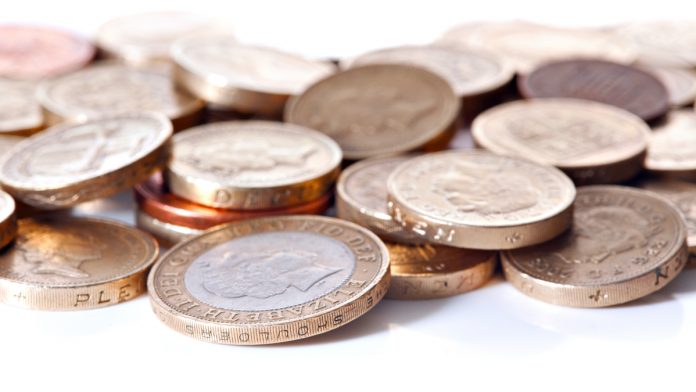Increased investor confidence that the UK would not crash out of the EU without a deal the pound rally over the past 4 weeks. After Theresa May’s Brexit deal was crushed in the House of Commons, investors were increasingly certain that Parliament would delay Brexit rather than allow a no deal Brexit.
| What do these figures mean? |
|---|
|
When measuring the value of a pair of currencies, one set equals 1 unit and the other shows the current equivalent. As the market moves, the amount will vary from minute to minute. For example, it could be written: 1 GBP = 1.13990 EUR Here, £1 is equivalent to approximately €1.14. This specifically measures the pound’s worth against the euro. If the euro amount increases in this pairing, it’s positive for the pound. Or, if you were looking at it the other way around: 1 EUR = 0.87271 GBP In this example, €1 is equivalent to approximately £0.87. This measures the euro’s worth versus the British pound. If the sterling number gets larger, it’s good news for the euro. |
Today the House of Commons will vote again on Brexit, this time on Theresa May’s Brexit plan B. This vote could change the course of Brexit. There are two rival sides in Parliament. If one wins then Theresa May will be sent back to Brussels to renegotiate the Irish backstop; the most controversial part of the deal. Should the other side win, Brexit will most likely be delayed.
The probability of each side claiming victory is dependent on which amendments are selected to be voted on. Any signs that the UK is moving further away from a no deal, hard Brexit could give the pound a lift.
| Why is a “soft” Brexit better for sterling than a “hard” Brexit? |
|---|
| A soft Brexit implies anything less than UK’s complete withdrawal from the EU. For example, it could mean the UK retains some form of membership to the European Union single market in exchange for some free movement of people, i.e. immigration. This is considered more positive than a “hard” Brexit, which is a full severance from the EU. The reason “soft” is considered more pound-friendly is because the economic impact would be lower. If there is less negative impact on the economy, foreign investors will continue to invest in the UK. As investment requires local currency, this increased demand for the pound then boosts its value. |
Euro Resilient As Draghi Sticks To Familiar Message
The euro traded relatively flat in the previous session, as European Central Bank (ECB) President Mario Draghi repeated his message from last week, with no new surprises. Draghi confirmed that economic data from the eurozone area had been weakening, as he addressed the European Parliament in Brussels. He once again suggested that risks to the economy were moving to the downside, owing to softer external demand and some country specific factors. However, which he said that the eurozone economic outlook was bleaker than he had originally expected, he did not believe it warranted any additional monetary support.
This was enough to keep euro investors happy. Whilst Draghi didn’t discuss tightening monetary policy, through hiking interest rates, at least he doesn’t believe loosening monetary policy is necessary.
| Why do raised interest rates boost a currency’s value? |
|---|
| Interest rates are key to understanding exchange rate movements. Those who have large sums of money to invest want the highest return on their investments. Higher interest rate environments tend to offer higher yields. So, if the interest rate or at least the interest rate expectation of a country is relatively higher compared to another, then it attracts more foreign capital investment. Large corporations and investors need local currency to invest. More local currency used then boosts the demand of that currency, pushing the value higher. |
There is no high impacting eurozone economic data today. The euro will move at the will of the pound.
This publication is provided for general information purposes only and is not intended to cover every aspect of the topics with which it deals. It is not intended to amount to advice on which you should rely. You must obtain professional or specialist advice before taking, or refraining from, any action on the basis of the content in this publication. The information in this publication does not constitute legal, tax or other professional advice from TransferWise Inc., Currency Live or its affiliates. Prior results do not guarantee a similar outcome. We make no representations, warranties or guarantees, whether express or implied, that the content in the publication is accurate, complete or up to date. Consult our risk warning page for more details.
This article was initially published on TransferWise.com from the same author. The content at Currency Live is the sole opinion of the authors and in no way reflects the views of TransferWise Inc.





